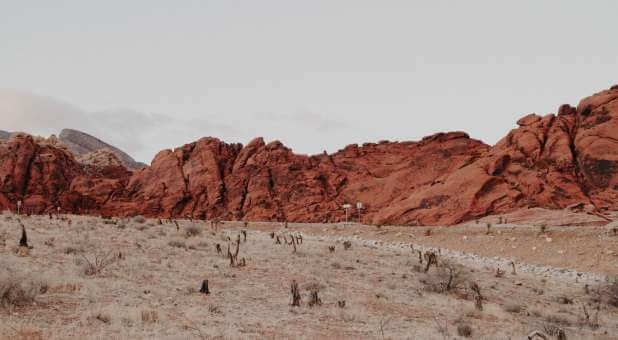What comes to mind when you picture a desert? Perhaps your mind’s eye sees endless miles of white sand and rolling dunes. Or perhaps you imagine such extreme thirst and heat that you can feel your throat going dry.
Just as real deserts stretch across hundreds of miles, Bible deserts remain prevalent around the world. These spiritual dry lands are places where the Bible is illegal or not readily available. After all, most of us have one, two or even three Bibles at home. But these spiritual deserts still exist, and as Christians we have a mission to bring Living Water to them.
Below are a few facts about Bible deserts:
Who lives in a Bible desert?
Often, those in Bible deserts are people who live on the margins of life. Here are a few examples:
- David lives in Burundi where a Bible would cost his entire month’s salary. He can’t afford a copy of God’s Word, so he borrows a Bible from a friend to hand-copy verses.
- Li lives in rural China where many people have never even seen a Bible. “There are no Bibles on sale in any bookstore in the city where I live,” he said. “Even one Bible for our family will be the best gift for us.”
- Mee-Yon was thrown into a North Korea labor camp simply for owning a Bible. She was interrogated for hours and beaten. But despite the great risk, she and other leaders of the underground church in North Korea continue to ask for more Bibles.
These are just a few examples of people living in Bible deserts. Their neighbors, family and friends are going through similar hardships but haven’t been lucky enough to receive a Bible yet.
Why are there Bible deserts?
Here are three leading factors:
- Religious persecution: Christians often suffer persecution in countries where they are in the religious minority. Sometimes this persecution even comes from neighbors and family members. In North Korea and China, getting caught with a Bible can raise the government’s suspicion and lead to serious punishment. For these reasons, it’s extremely difficult for persecuted Christians to purchase a Bible without endangering themselves and their loved ones.
- Poverty: In countries such as Rwanda and Guatemala, debilitating poverty keeps people from hearing about Jesus Christ. People in these countries can’t afford food and water—let alone a Bible.
- Refugee crisis: Violence and civil war have ripped apart countries such as Syria and Iraq. People have had to flee their homes, leaving their possessions behind—including their Bibles. Because of this, Bibles are virtually nonexistent in many refugee camps.
How can we help?One of World Help’s founding missions is to provide Bibles to restricted countries around the world. For nearly three decades, we have sent hundreds of thousands of Bibles to Russia, China, North Korea, Cuba and many countries across the Middle East and North Africa.
What’s amazing is that each Bible has the potential of impacting at least five people. In some places, an entire underground church will huddle around its one precious copy of Scripture! We might be far away, but we can still saturate these barren lands with God’s Word.
I hope you will join us in this work, and watch Bible deserts transform into oases that flow with living water to all who thirst. {eoa}
Kelsey Campbell writes for World Help, a Christian humanitarian organization serving the physical and spiritual needs of people in impoverished communities around the world.












































